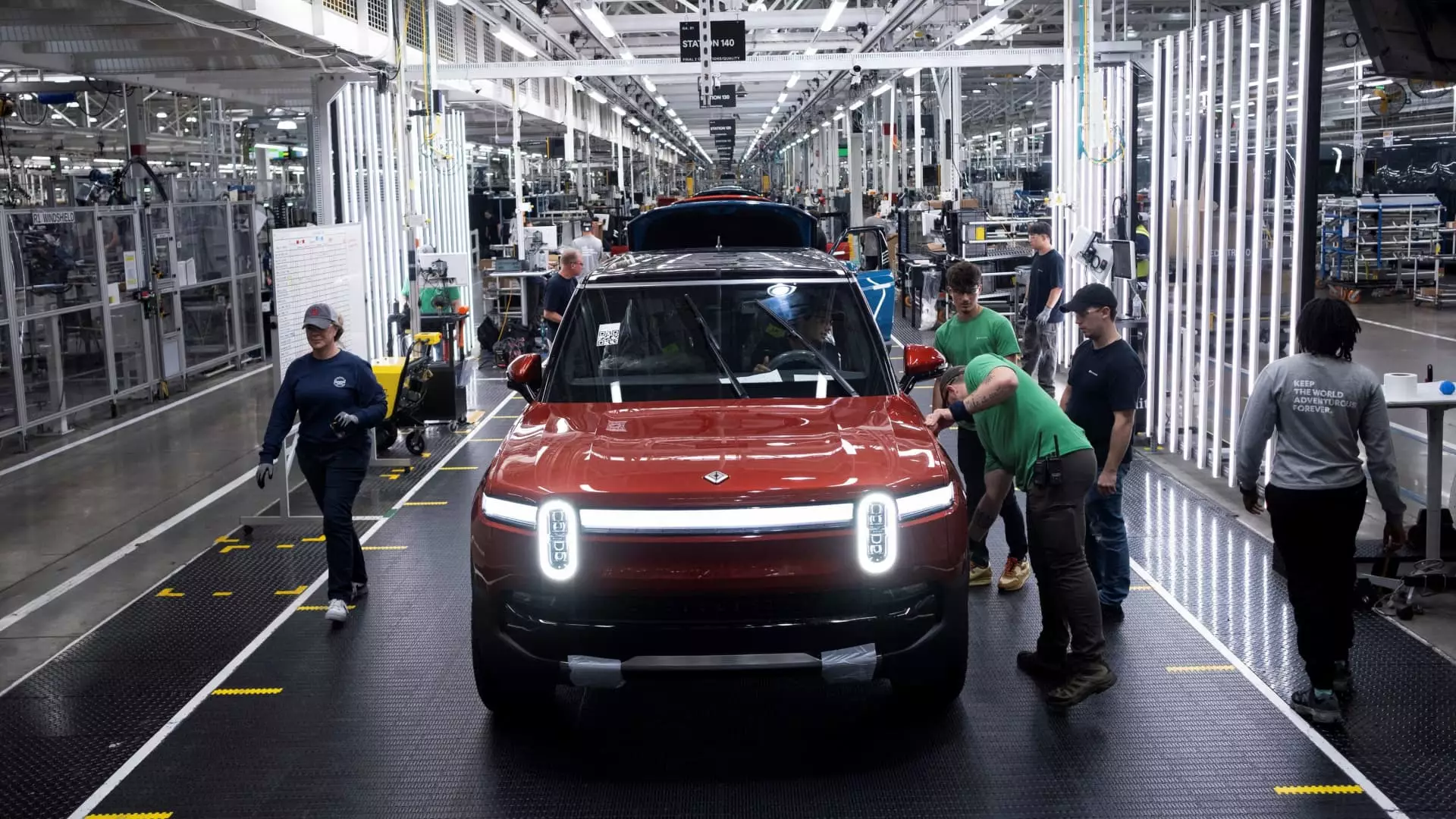Rivian Automotive, the electric vehicle manufacturer, suffered a significant setback in early trading on a recent Friday, witnessing a 4% drop in its stock value. The decline came after the company reported that its third-quarter vehicle deliveries fell short of analysts’ expectations. Rivian’s production numbers for the quarter reveal that it managed to produce only 13,157 vehicles and delivered a mere 10,018 units, despite projections estimating deliveries to hover around 13,000. This shortfall not only highlights operational inefficiencies but also reflects broader challenges within the EV market.
In a move that startled investors, Rivian lowered its annual production forecast for 2024 from an ambitious target of 57,000 vehicles to a revised estimate of between 47,000 and 49,000 units. This downward adjustment was attributed to a “production disruption due to a shortage of a shared component” used in both its R1 vehicles and a commercial van. The company acknowledged that the impact of the supply shortfall, which became pronounced in the third quarter, has persisted and intensified throughout recent weeks. The admitted challenges associated with their in-house motors signify an ongoing struggle with their supply chain, an aspect that is critical for the scaling of production.
Rivian’s CEO, RJ Scaringe, candidly addressed these supply chain difficulties during a Morgan Stanley investor conference held the previous month. He recognized the multi-tiered nature of the supply chain as a source of complications for the manufacturer, mentioning specific challenges that emerged from working with certain suppliers. The struggle with in-house motor components serves as a stark reminder of how dependency on suppliers can influence production capabilities and, consequently, market performance.
Despite these adverse developments, Rivian maintained its annual delivery outlook, anticipating low single-digit growth relative to the previous year. The company estimates deliveries to be between 50,500 and 52,000 vehicles for the current year. However, this optimism conflicts with the stark reality reflected in the company’s stock performance; Rivian shares have plummeted over 50% in 2024 due to slower-than-expected EV demand and substantial cash burn rates. The challenges faced by Rivian are emblematic of broader trends affecting the electric vehicle industry, where production and delivery hurdles can significantly impact investor confidence.
As Rivian navigates these turbulent waters marked by supply chain disruptions and fluctuating production targets, it finds itself at a critical juncture. The company’s ability to adapt and streamline its operations will be essential for restoring confidence among investors and staking a claim within the competitive EV market. With the potential for recovery hinging on how effectively Rivian can address its supply chain concerns, the coming months will be pivotal for this ambitious automaker.

Leave a Reply